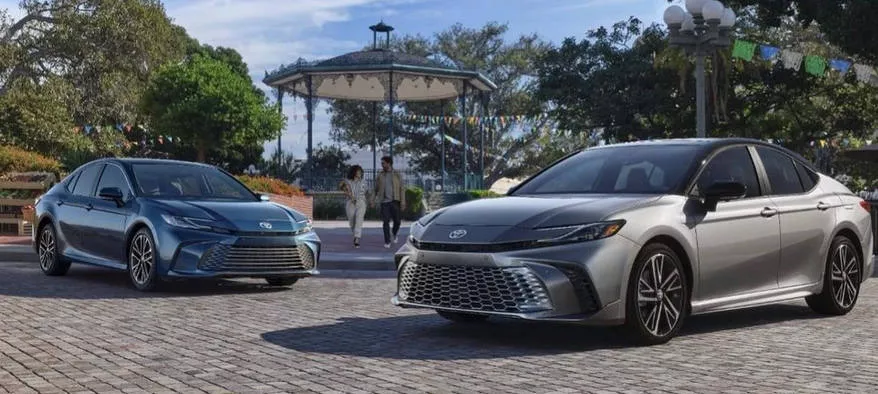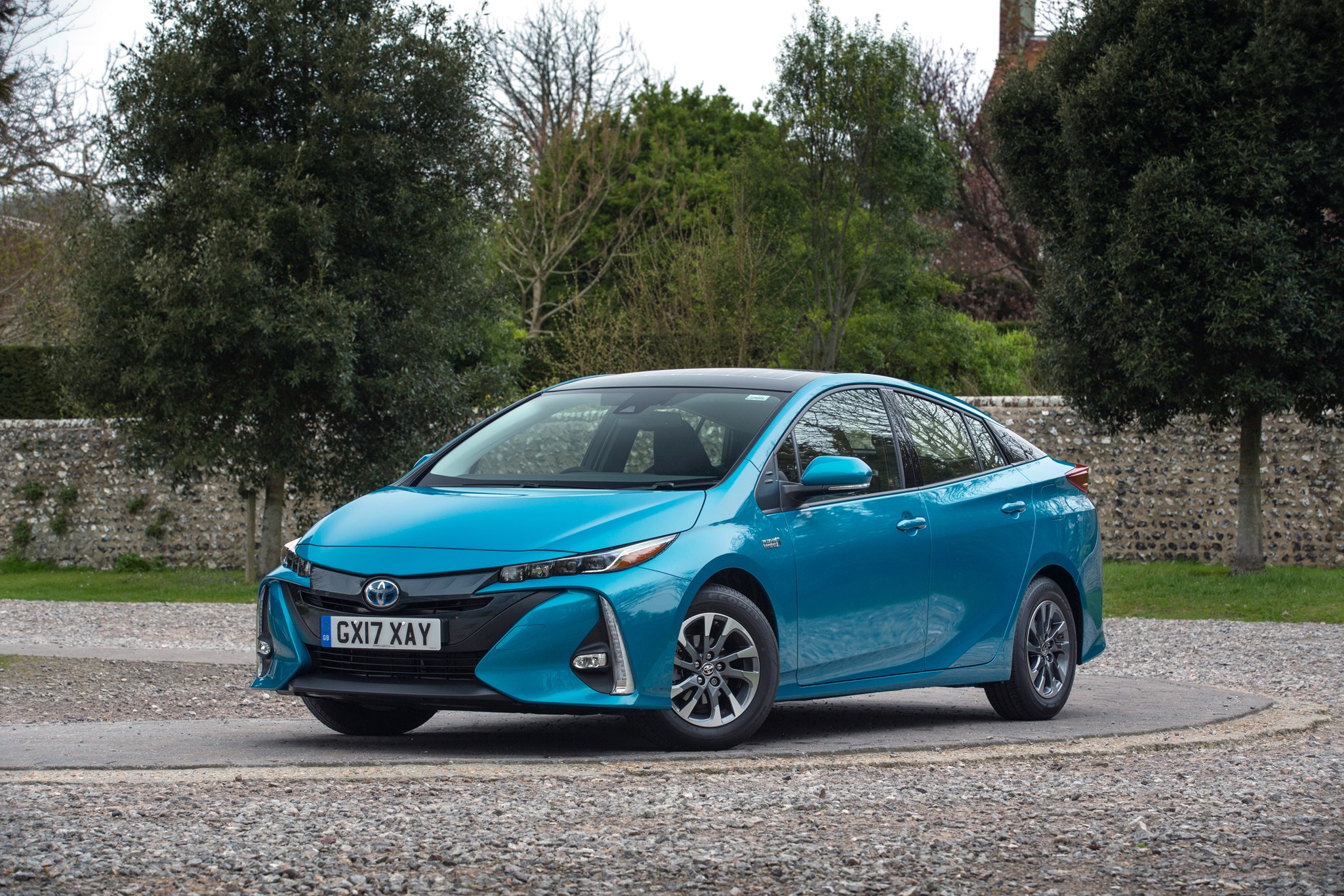Overview of Hybrid Car Market
The hybrid car market is experiencing significant growth, driven by increasing consumer demand for fuel-efficient and environmentally friendly vehicles. Government incentives and evolving consumer preferences for sustainable transportation options are major catalysts in this trend. This growth is not uniform across all segments, with certain categories showing stronger performance than others.
The market is dynamic and competitive, with established players like Toyota vying for market share with new entrants and evolving technologies. Key developments such as advancements in battery technology, improved fuel efficiency, and rising awareness of environmental concerns are shaping the trajectory of the market. Understanding these trends is crucial for accurately assessing the market’s future and making informed purchasing decisions.
Key Trends and Developments
Several factors are impacting hybrid car sales. Rising fuel prices are prompting consumers to seek alternative, more cost-effective transportation options. Stringent environmental regulations and consumer demand for eco-friendly vehicles are driving innovation and adoption. Technological advancements, such as improved battery technology and electric motor performance, are enhancing the driving experience and extending the range of hybrid vehicles. Government incentives, including tax credits and subsidies, are further encouraging the shift towards hybrid vehicles.
Common Features and Benefits of Toyota Hybrid Vehicles
Toyota is a recognized leader in hybrid technology, offering a range of vehicles with well-established reputations for reliability and fuel efficiency. Common features across Toyota hybrid models include a combination of gasoline and electric powertrains, resulting in improved fuel economy compared to traditional gasoline-powered vehicles. These vehicles typically offer a smooth and quiet driving experience, along with advanced safety features and technological advancements. The reliability and long-term performance of Toyota hybrids are often cited as significant benefits.
Hybrid Car Categories Comparison
The hybrid car market encompasses a variety of categories, each with its own strengths and features. This comparison table provides a general overview of different hybrid car segments.
| Category | Fuel Efficiency (in MPG) | Features | Price Range |
|---|---|---|---|
| Compact Hybrid Cars | 40-50 MPG | Fuel efficiency, smaller size, maneuverability, potentially lower price point | $20,000 – $30,000 |
| Mid-Size Hybrid Cars | 45-60 MPG | More passenger space, higher performance, often more advanced features | $25,000 – $40,000 |
| Hybrid SUVs | 35-55 MPG | Spacious interiors, increased cargo space, all-weather capabilities, more robust design | $30,000 – $50,000+ |
Note: MPG figures are approximate and can vary based on specific models and driving conditions. Price ranges are approximate and can vary based on specific trim levels and features.
Toyota Hybrid Models
Toyota has a strong commitment to hybrid technology, offering a diverse range of models designed to cater to various needs and preferences. These vehicles combine the efficiency of electric powertrains with the dependability of gasoline engines, resulting in a compelling alternative to traditional combustion engines. The company’s hybrid lineup provides a blend of performance, fuel economy, and technology, making them attractive to environmentally conscious drivers and those seeking a balanced driving experience.
Available Toyota Hybrid Models
Toyota currently offers a variety of hybrid models, each with unique features and specifications. The range includes compact cars ideal for city driving, mid-size vehicles perfect for family trips, and even SUVs that blend practicality with efficiency.
Key Specifications of Toyota Hybrid Models
This section details the key specifications of various Toyota hybrid models, providing a comprehensive overview of their performance capabilities and features. Understanding these details can aid in selecting the most suitable vehicle based on individual requirements.
| Model Name | Engine Type | Horsepower | Battery Capacity | Starting Price |
|---|---|---|---|---|
| Toyota Camry Hybrid | 2.5L Four-Cylinder Hybrid | 208 hp | 1.3 kWh | $26,000 (estimated) |
| Toyota Prius | 1.8L Four-Cylinder Hybrid | 121 hp | 1.6 kWh | $28,000 (estimated) |
| Toyota RAV4 Hybrid | 2.5L Four-Cylinder Hybrid | 215 hp | 1.6 kWh | $30,000 (estimated) |
| Toyota Highlander Hybrid | 3.5L V6 Hybrid | 305 hp | 2.4 kWh | $40,000 (estimated) |
Trim Level Differences
Different trim levels within each Toyota hybrid model offer varying features and equipment. For instance, higher trim levels often include premium interior materials, advanced technology features, and upgraded safety systems. These variations can significantly affect the overall cost of the vehicle. Consideration of the specific needs and preferences will help in selecting the appropriate trim level.
Pricing and Value

Toyota hybrid vehicles offer a compelling value proposition, but their pricing is influenced by a complex interplay of factors. Understanding these factors is crucial for consumers to make informed decisions about purchasing a Toyota hybrid. The overall value proposition often balances fuel efficiency gains against the added cost of hybrid technology.
The cost of a Toyota hybrid vehicle is not simply a markup on its conventional counterpart. It reflects the advanced technology, materials, and engineering required to achieve superior fuel economy and performance characteristics. The price often reflects the investments in research and development that go into creating the hybrid powertrain.
Factors Influencing Toyota Hybrid Car Pricing
Several factors contribute to the pricing of Toyota hybrid vehicles. Manufacturing costs, research and development expenses, and government incentives all play a role. The cost of raw materials and the complexity of the hybrid system itself influence the final price. Furthermore, the specific features and trim levels chosen by the consumer can affect the price significantly.
Comparison to Comparable Non-Hybrid Models
Toyota’s commitment to efficiency often translates into a price premium compared to similar non-hybrid models. This difference reflects the additional engineering and technology required for the hybrid powertrain. The price differential, however, can vary depending on the specific model and features.
Toyota Hybrid Price Comparison Table
| Toyota Model | Non-Hybrid Equivalent | Price Difference |
|---|---|---|
| Toyota Camry Hybrid | Toyota Camry | $1,500 – $3,000 (depending on trim level and options) |
| Toyota Prius | Toyota Prius c | $2,000 – $4,000 (depending on trim level and options) |
| Toyota RAV4 Hybrid | Toyota RAV4 | $1,000 – $2,500 (depending on trim level and options) |
*Note: Price differences are approximate and can vary based on specific trim levels, options, and market conditions.
Trim Level and Option Variations
The price of a Toyota hybrid car can vary significantly based on the selected trim level and optional features. Higher trim levels often include additional features like premium sound systems, advanced safety technologies, and more luxurious interior materials. These features contribute to the overall cost of the vehicle. Similarly, the inclusion of options such as advanced driver-assistance systems, panoramic sunroofs, or premium paint jobs will increase the final price.
Research and Consumer Insights
Understanding consumer preferences and expectations is crucial for assessing the market appeal of Toyota hybrid vehicles. Consumer research reveals key factors driving purchase decisions, which can be used to refine marketing strategies and product development. Analyzing customer reviews provides valuable insights into the strengths and weaknesses of specific models, helping Toyota identify areas for improvement and highlight key selling points.
Consumer preferences for hybrid vehicles often center around fuel efficiency, environmental consciousness, and perceived technological advancements. A significant portion of the market is motivated by the desire for reduced operating costs, aligning with the economic realities of rising fuel prices. The perceived prestige and performance advantages associated with hybrid technology also contribute to consumer appeal.
Consumer Preferences and Expectations
Consumers prioritize fuel efficiency and reduced environmental impact when considering hybrid vehicles. They expect a smooth, quiet ride, and a satisfying performance that mirrors or surpasses comparable gasoline-powered vehicles. Technological advancements in hybrid systems, such as improved battery technology and advanced driver-assistance systems, are highly valued.
Factors Influencing Purchase Decisions
Several factors significantly influence consumer purchase decisions regarding hybrid cars. These include fuel economy, maintenance costs, perceived reliability, and the overall driving experience. Positive reviews and word-of-mouth recommendations from other owners often play a crucial role in shaping purchase decisions. The price point, compared to competing models, is also a significant consideration.
Customer Reviews and Ratings
Customer reviews and ratings provide valuable feedback on Toyota hybrid models. These assessments highlight areas of satisfaction and dissatisfaction, helping to understand the strengths and weaknesses of each model. Reviews often touch upon factors like performance, interior comfort, fuel economy, and overall value. Analyzing these reviews provides a comprehensive understanding of consumer perceptions.
Toyota Hybrid Model Ratings and Reviews
| Model Name | Rating | Review Summary |
|---|---|---|
| Toyota Prius | 4.5/5 | Generally praised for exceptional fuel economy, reliability, and advanced technology. Some owners note a slightly less powerful acceleration compared to some competitors. |
| Toyota Camry Hybrid | 4.3/5 | High praise for comfortable ride, smooth performance, and good fuel economy. Some reviewers mention a somewhat limited cargo space compared to comparable non-hybrid models. |
| Toyota RAV4 Hybrid | 4.6/5 | Strong reviews highlight excellent fuel economy, spacious interior, and versatile capability. Some owners mention a slightly higher price compared to other SUVs in the same class. |
| Toyota Highlander Hybrid | 4.2/5 | Reviewers generally appreciate the powerful engine, smooth acceleration, and comfortable seating. Some feedback indicates a slightly higher price compared to non-hybrid counterparts, with varying opinions on the need for additional space compared to competitors. |
Buying Considerations

Choosing a Toyota hybrid involves careful consideration of various factors. Understanding the nuances of hybrid technology, maintenance costs, and warranty coverage is crucial for making an informed decision. Toyota’s hybrid models offer a blend of efficiency and performance, but individual needs and priorities must be weighed against the potential advantages and disadvantages.
Factors to Consider When Buying a Toyota Hybrid
Several key factors influence the decision to purchase a Toyota hybrid. Fuel efficiency, driving experience, and long-term ownership costs are significant considerations. Features like safety technology, interior comfort, and available trims should also be evaluated. A thorough understanding of these factors allows potential buyers to make a well-informed choice.
- Fuel Efficiency and Performance: Toyota hybrids are renowned for their fuel efficiency, often surpassing comparable gasoline-powered vehicles. However, performance characteristics can vary between models, impacting acceleration and responsiveness. Assessing individual needs regarding fuel economy and driving experience is essential.
- Technology and Features: Toyota hybrids often incorporate advanced technology, including hybrid-specific driver-assistance systems, infotainment features, and connectivity options. Evaluating the specific features available in different models is critical to matching individual preferences.
- Maintenance and Repair Costs: Hybrid vehicles, while often more fuel-efficient, may have slightly higher maintenance costs than conventional vehicles due to the complexity of the hybrid drivetrain. Understanding potential repair costs is crucial for long-term budgeting.
- Resale Value: Toyota hybrids generally retain their resale value well, offering a more attractive proposition for future vehicle sales compared to some competitors. This aspect is important for individuals planning to sell their vehicle within a specific timeframe.
Maintenance and Repair Costs of Toyota Hybrids
Hybrid vehicles, while offering fuel efficiency, often have a more intricate drivetrain than conventional cars. This complexity can impact maintenance and repair costs. Regular maintenance, including fluid checks and filter replacements, is essential. However, some hybrid components may require specialized tools and expertise, potentially leading to higher repair costs.
- Regular Maintenance: Scheduled maintenance, like oil changes and filter replacements, is still crucial. However, specific hybrid components might require specialized tools or trained technicians, potentially impacting costs.
- Hybrid-Specific Repairs: If a component within the hybrid system fails, repairs can be more complex and potentially more expensive than comparable repairs on a conventional vehicle. This necessitates careful consideration of the potential financial burden.
- Warranty Coverage: Toyota’s hybrid warranty, as with other models, covers specific components and conditions. Understanding the coverage limits and exclusions is essential to avoid unexpected repair costs.
Potential Pros and Cons of Purchasing a Toyota Hybrid
Evaluating the potential advantages and disadvantages of a Toyota hybrid is essential before making a purchase. Fuel efficiency, lower emissions, and advanced technology are significant advantages. However, the initial purchase price and potential repair costs need careful consideration.
- Pros: Fuel efficiency, lower emissions, advanced technology, potentially higher resale value.
- Cons: Higher initial purchase price, potential higher maintenance and repair costs for some components, potential for less extensive parts availability compared to conventional models.
Warranty Coverage for Toyota Hybrids
Toyota provides warranty coverage for hybrid components, similar to other vehicle models. Understanding the specific terms and conditions is crucial.
| Model Name | Warranty Details | Coverage Period |
|---|---|---|
| Prius | Powertrain warranty covers hybrid components, including the battery. Specific terms vary by model year. | 3 years/36,000 miles (or longer in some cases) |
| RAV4 Hybrid | Comprehensive warranty covers hybrid system components. Specific terms vary by model year. | 3 years/36,000 miles (or longer in some cases) |
| Camry Hybrid | Powertrain warranty covers hybrid system components, including the battery. Specific terms vary by model year. | 3 years/36,000 miles (or longer in some cases) |
Note: Specific warranty details may vary based on model year and specific trim level. Always refer to the manufacturer’s website or a dealer for the most up-to-date information.
Future Trends

The hybrid vehicle market is poised for significant evolution, driven by advancements in technology and shifting consumer preferences. This dynamic landscape necessitates a forward-looking analysis to understand the trajectory of Toyota’s hybrid offerings and the broader hybrid market.
The hybrid vehicle market is undergoing a period of transformation, with electric vehicles (EVs) playing an increasingly prominent role. This shift presents both opportunities and challenges for manufacturers like Toyota, who must adapt their strategies to remain competitive.
Anticipated Advancements in Hybrid Technology
Hybrid technology is expected to see continued refinement and optimization in the coming years. This will likely manifest in improved fuel efficiency, reduced emissions, and enhanced performance. Expect to see a greater integration of advanced materials and design innovations that result in lighter vehicles, optimizing powertrain efficiency, and further reducing environmental impact. The use of next-generation batteries and power electronics is also likely to play a crucial role in this evolution.
Potential Impact of Electric Vehicles on the Hybrid Market
The rise of electric vehicles is a major influence on the hybrid market. While EVs offer a fully electric driving experience, hybrids are likely to maintain their appeal for their ability to provide an accessible entry point to electrified driving. This balance between complete electrification and hybrid solutions will likely see hybrids evolving into more sophisticated powertrains that can seamlessly switch between electric and gasoline modes.
Price Trends for Toyota Hybrid Cars (Next 5 Years)
Predicting precise price trends is complex, influenced by factors such as production costs, raw material prices, government incentives, and consumer demand. However, some general trends can be observed, taking into account current economic conditions and historical data. The anticipated price trends for Toyota hybrid models are based on the assumption of moderate inflation and sustained consumer demand.
| Model Name | Predicted Price Change (Year 1) | Predicted Price Change (Year 5) |
|---|---|---|
| Toyota Camry Hybrid | +2-3% | +5-7% |
| Toyota Prius | +1-2% | +4-6% |
| Toyota RAV4 Hybrid | +2-4% | +5-7% |
| Toyota Highlander Hybrid | +3-5% | +6-8% |
Note: Price changes are estimated and subject to fluctuation based on various market factors.